Thus They Will Sing
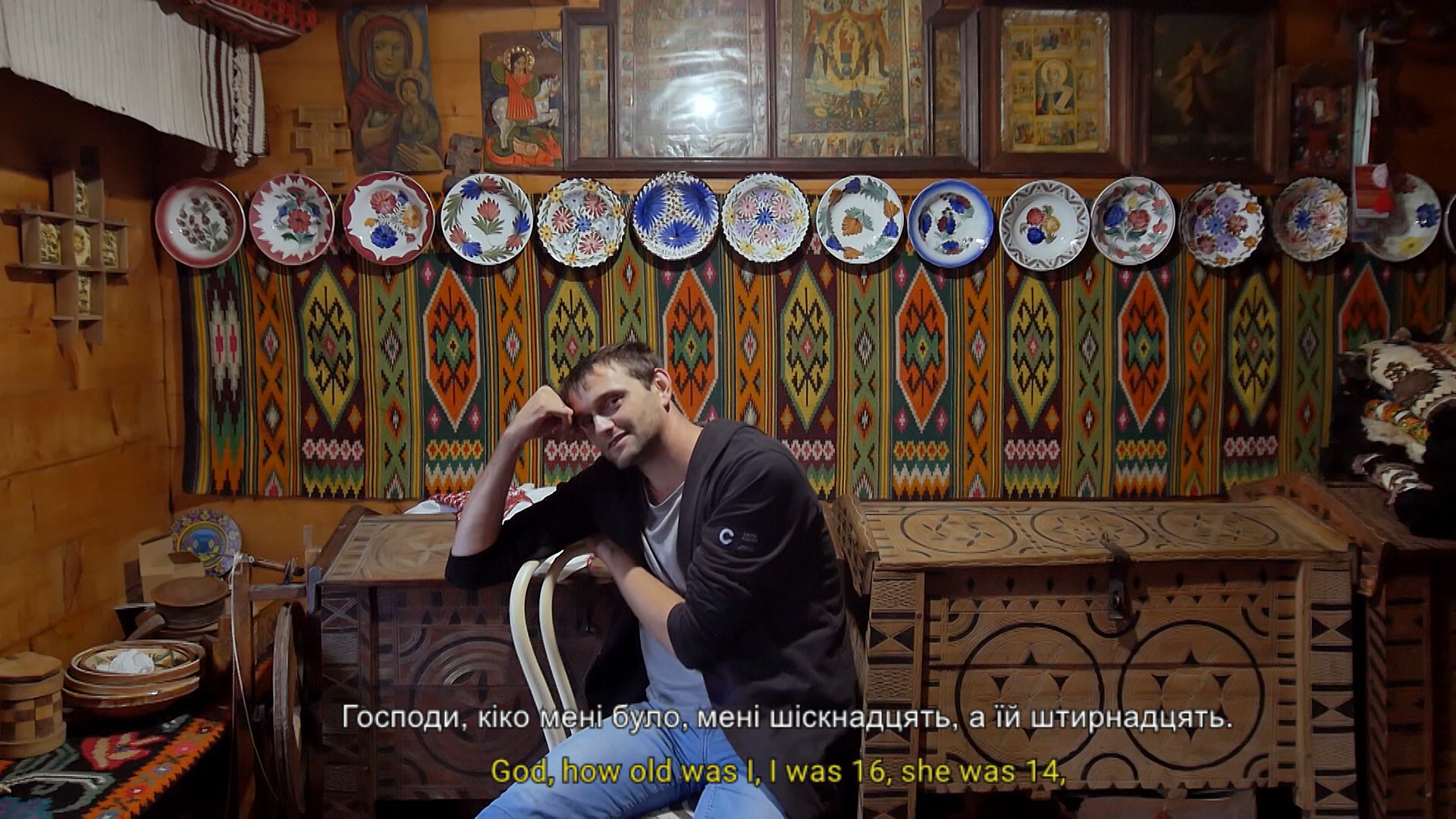
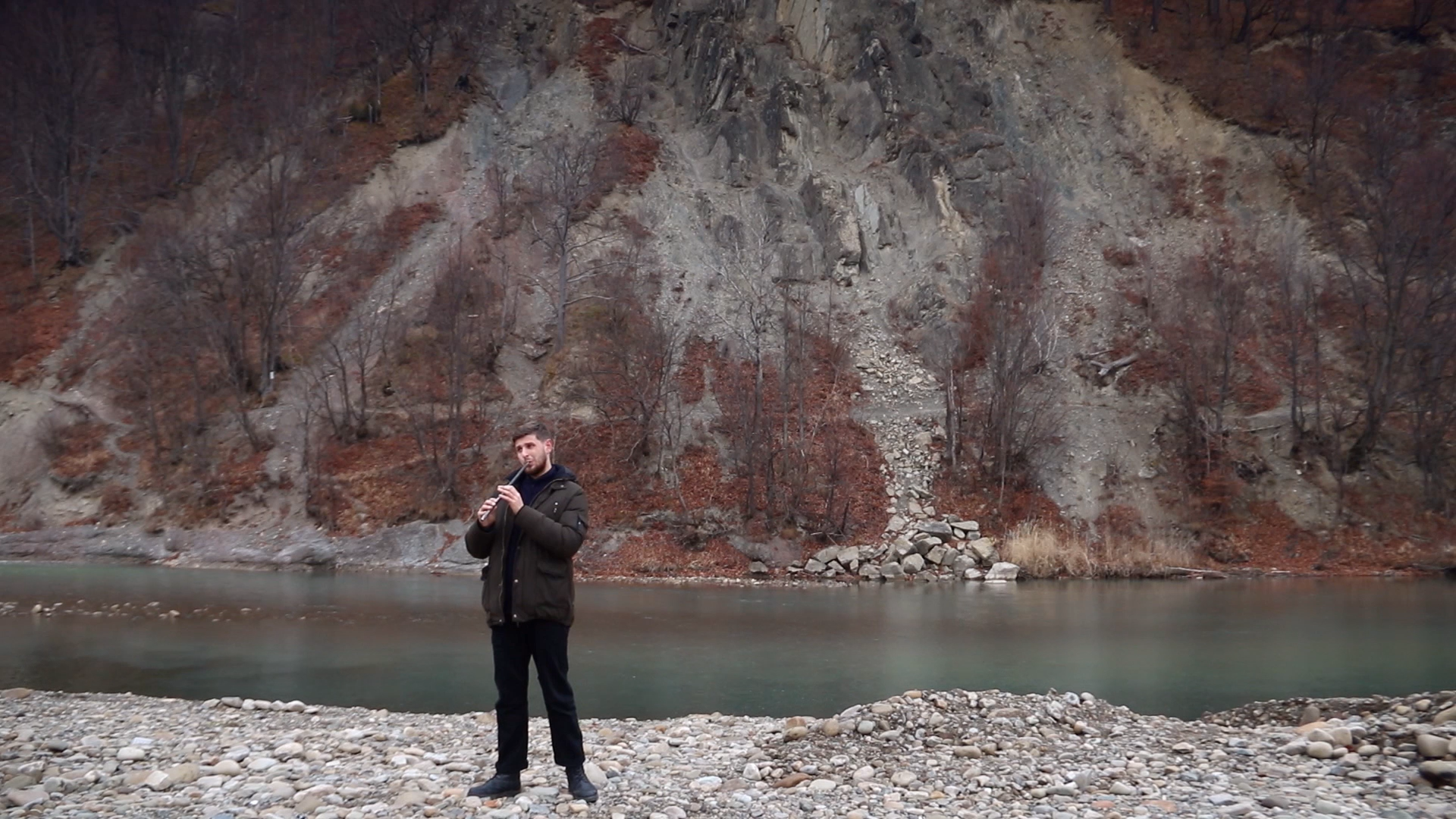
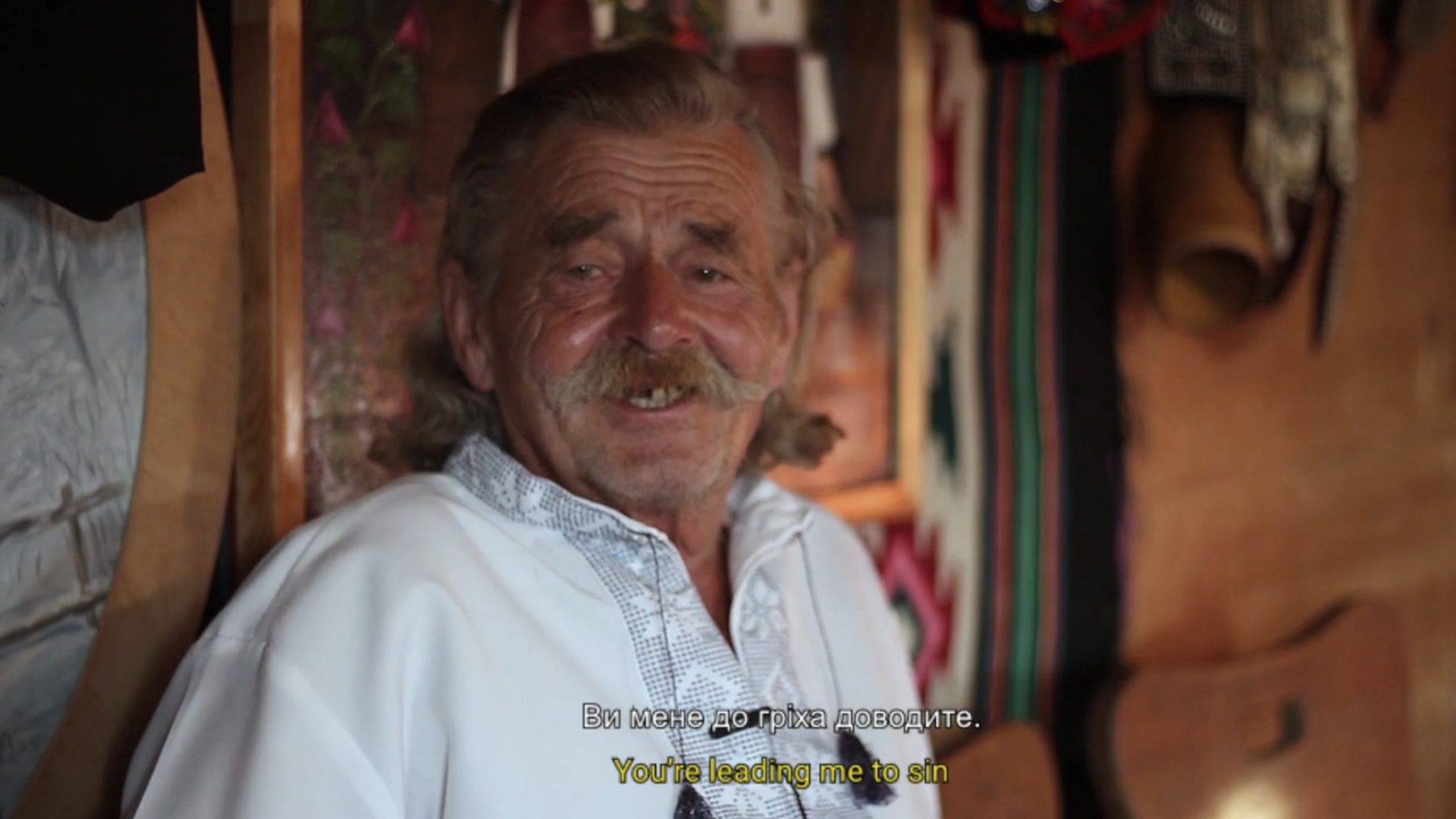
Сhatty boy led chatty girl
To a ridge as night unfurled,
And on that darkened peak they fucked
Embracing till dawn’s light first struck.
This verse is just one example of the obscene folk songs compiled by Taras Shevchenko and collected in his albums. They are a part of his oeuvre that has often been overlooked by literary scholars and ethnographers and are still relatively unknown to Ukrainian readers, let alone to those abroad. The erotic verses from Shevchenko’s album entries were only published in 2001 in ‘Bandurka’, a book by Mykola Sulyma that tells a complicated history of collecting erotic folk songs, which are often referred to as ‘shameless’ (сороміцькі) in Ukrainian. The shameless genre has been a focus of interest for ethnographers since the 18th century, some of them fully embracing the importance and challenge of the material and some having to overstep their own prejudice towards it when it came to the publishing. The shameless folk tradition was taboo in the Soviet Union, before experiencing a revival after Ukraine gained independence in 1991, mainly in the context of ethnographic study of sexuality.
When I was very small I asked my mother
What that thing between the legs is called,
And my mum answered me, “Son, it is a pussy”,
Oh my mother, dear mother, how sweet it is!
– collected from Ostap (Nadvirna)
Anna Yutchenko and Diana Horban bring their research of the shameless songs to the screen in the short documentary ‘Thus They Will Sing’ (see trailer), in which they invite interviewees of different generations from Ivano-Frankivsk region to recount their experiences of love, romance and sex, and to sing the songs. The film contains a conversation between generations, showing how tradition is simultaneously dissolved into modernisation and upheld in the efforts of the younger to document and elicit the songs of the older. The latter is depicted in the scene of a shameless song battle between one of the heroes, Ostap, a young botanist and teacherfrom Nadvirna, and Manusia, an elderly lady from Bystrets. In the film, respondents are often initially shy to share the songs, or after singing a chant, they half-playfully avert their eyes and say, ‘That‘s a sin.’ However, this reaction, Anna and Diana explain, depends on the context, as shameless songs are usually sung in the familiarity of communal feasts and celebrations, while the researching gaze of the prying camera creates an opposite atmosphere.
You can rent and see the film at the link.
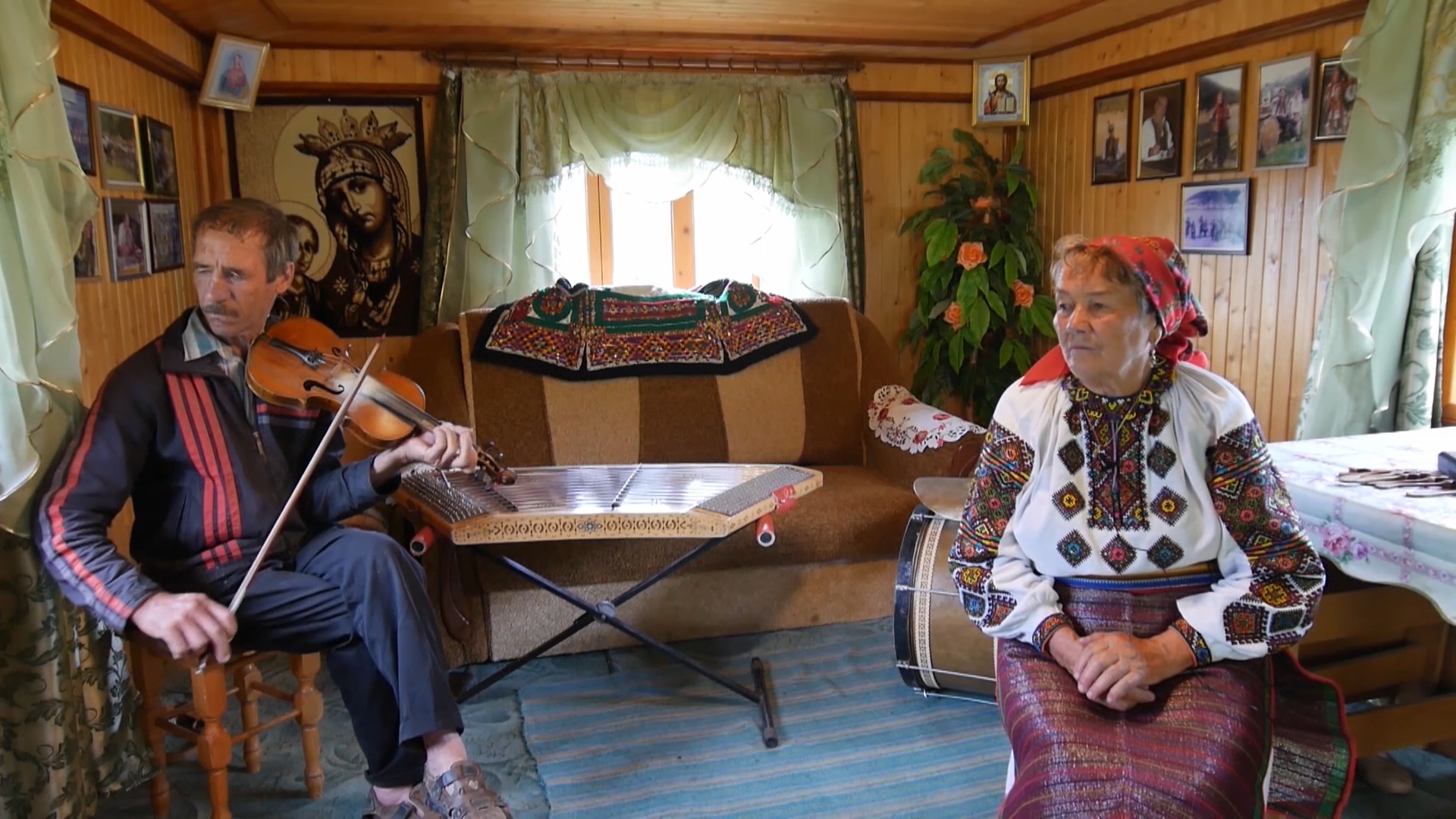
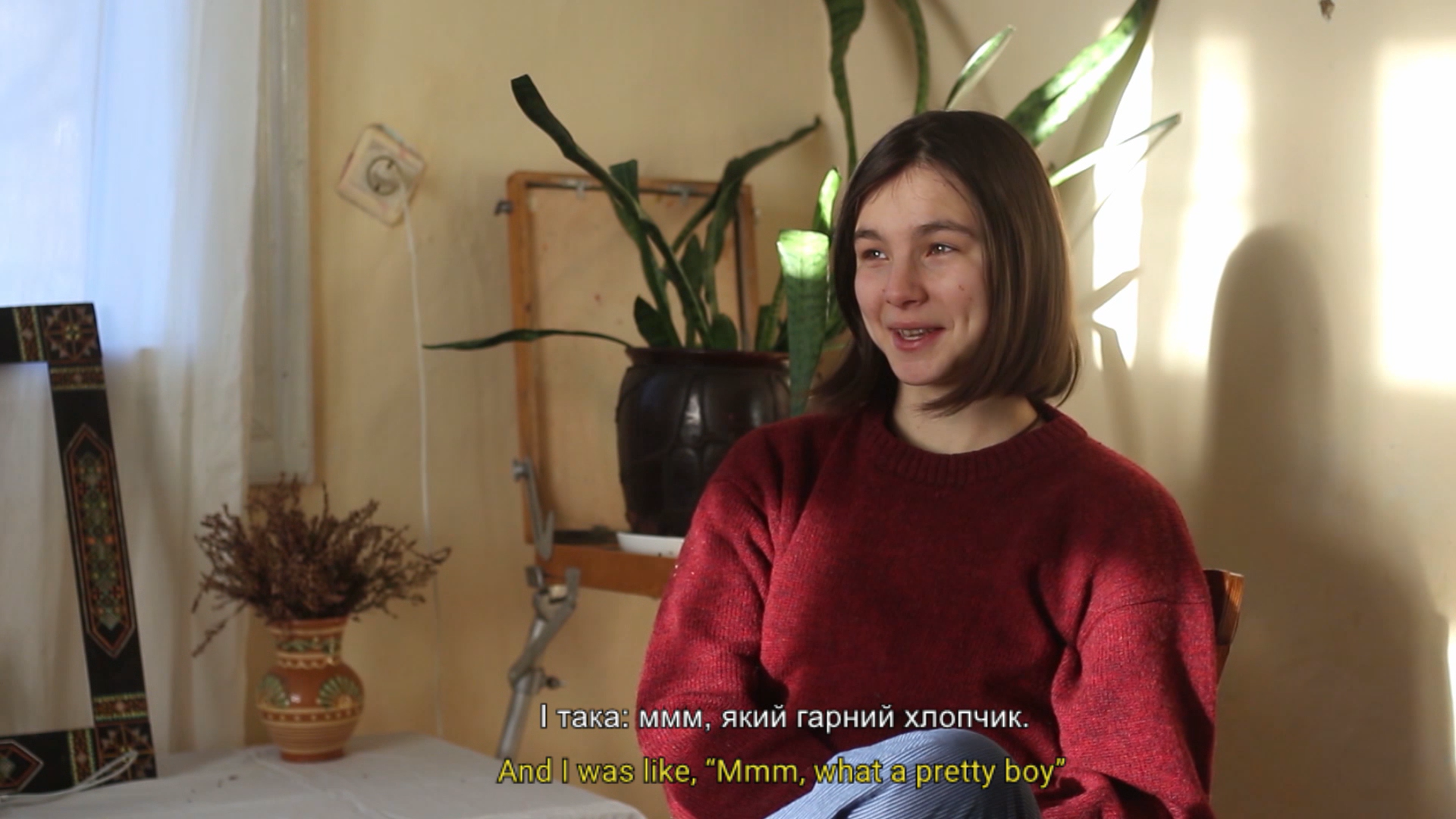
The work is exhibited within the Erasing and Recalling project supported as part of the (re)connection UA 2023/24 programme, which is implemented by the Museum of Contemporary Art (MOCA) NGO and the Ukrainian Emergency Art Fund (UEAF) in partnership with UNESCO and funded through the UNESCO Heritage Emergency Fund.
Text by Valeriia Buradzhyieva. Editing by Ada Wordsworth.
Published 11 July 2024
Anna Yutchenko A documentary photographer, film director and poet. She graduated from the Master's program in journalism at Ukrainian Catholic University and the IndieLab workshop for young documentary filmmakers. Director and co-director of documentaries: ‘I Must Sing’ (as part of IndieLab, 2020), ‘The Pan Axis’ (2022), ‘Our Home’ (Wiz-Art Film Residency, 2023), ‘Dialogue About the Sea’ (La Guarimba Film Residency, 2023), and ‘Homefront’ (Zeppers Production, 2024).
Diana Horban An actress, singer, researcher and film director. She acts at the Franko House and at ‘On Simeons' Pillars’, a theatre based at Ukrainian Catholic University. She is a singer in the project ‘Circle of Paradise’. Her research includes exploring the songs of the Hutsulshchyna and Pokuttia regions and ‘Fox Mykyta’, a theatrical tour for children based at Franko House. Diana works as a videographer and photographer. She directed the documentary film ‘Thus They Will Sing’ and the feature film ‘The Normal’.
- Translated specially for SONIAKH by Ada Wordsworth.
Балакучий балакучу
Вивів звечора на кручу,
Єбалися на горі
Аж до самої зорі.
2. A title of one of the shameless songs written down by Ivan Franko. A diminutive for one of the traditional string musical instruments, in the song ‘bandurka’ becomes a euphemism for the female sex organs.
3. See Бандурка: Українські сороміцькі пісні / Упоряд. Б32 М. Сулима.— К.: Дніпро, 2001.— 280 с.
